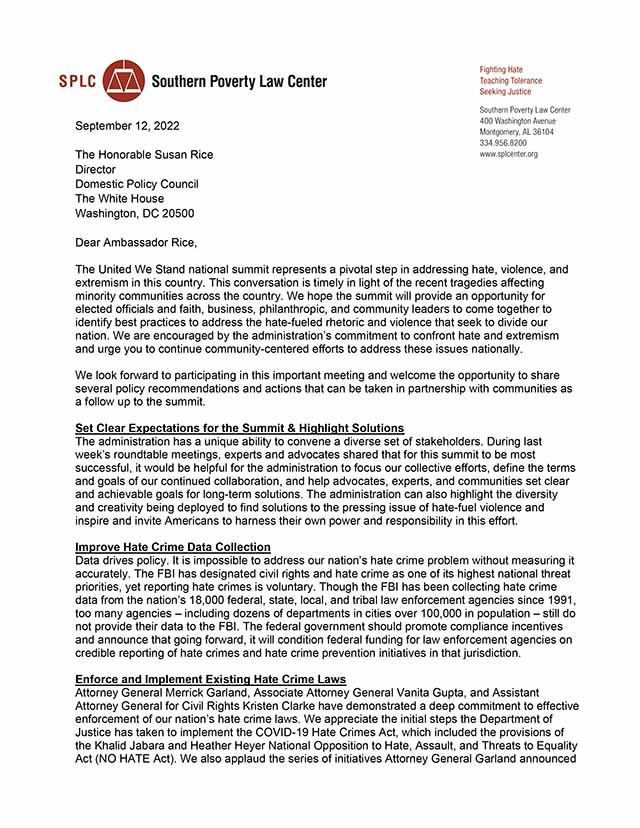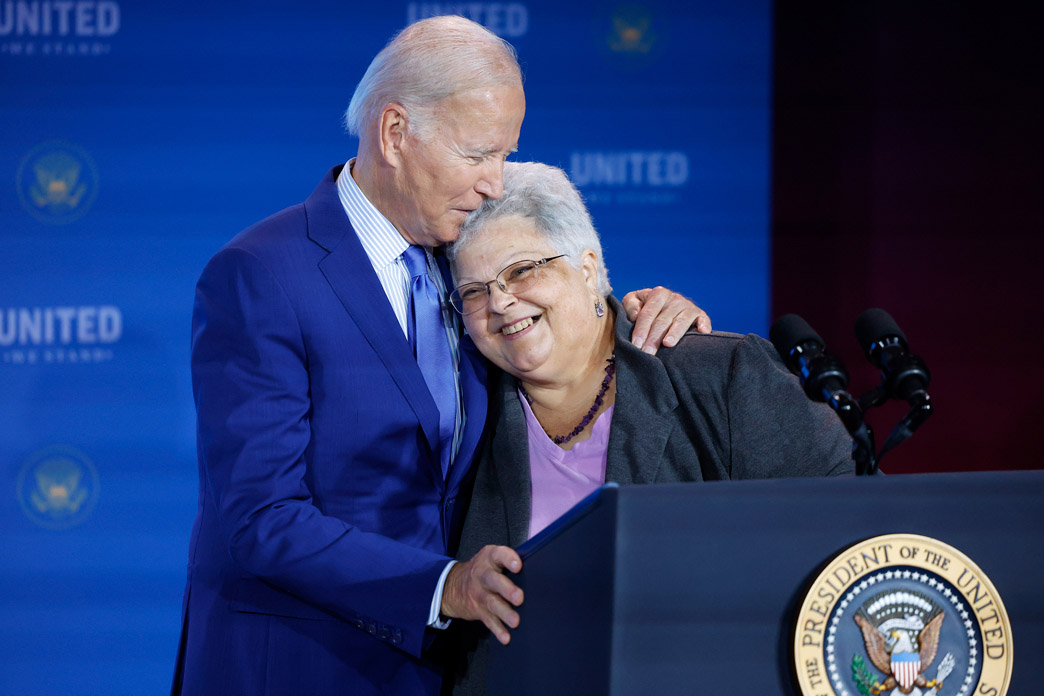United We Stand: SPLC outlines policy recommendations for national summit to fight hate and extremism
The United We Stand Summit convened today by the White House represents a pivotal step in the nation’s efforts to address the hate, violence and extremism that is threatening our communities and our democracy.
We welcomed the mid-August announcement of the summit and look forward to participating.
Earlier this week, we outlined our policy recommendations in a letter to Domestic Policy Advisor Susan Rice.
The summit will bring together local, state and federal policymakers, civil rights groups, faith and community leaders, technology and business leaders, law enforcement, survivors of hate-fueled violence and others.
As Ambassador Rice put it in her announcement, the goal is to “counter the corrosive effects of hate-fueled violence on our democracy and public safety, highlight the response of the Biden-Harris administration and communities nationwide to these dangers, and put forward a shared, bipartisan vision for a more united America.”
When the summit was announced, we set out three main goals for the White House convening:
- Improve hate crime data collection and response. It is impossible to tackle our nation’s hate crime problem without measuring it accurately. Though the FBI has been collecting hate crime data from the nation’s 18,000 law enforcement agencies since 1991, the reporting is voluntary, and many agencies do not collect hate crime data or provide it to the FBI.
- Center the victims and survivors of hate crimes, extremism and gun violence. We cannot arrest or prosecute racism, hatred or extremism out of existence. The focus must be on addressing the harms of hate-fueled violence, supporting victims and their families and working to heal and build resilience in their communities.
- Commit to long-term prevention initiatives. With an important presidential spotlight, we see the summit as an opportunity for elected officials and faith, business and community leaders to come together to identify best practices to confront hate-fueled violence. But we warned that the event should not be a one-off photo opportunity. Instead, we expressed our hopes that the summit will address the root causes of hate and extremism – and demonstrate a continuing commitment to promote shared democratic values, confront long-term contributors to hate-fueled violence and extremism, and build community healing, trust and resilience.
In advance of the summit, SPLC policy staff met to discuss what we would propose to the White House to help ensure that the event was productive and successful.
In preparing our recommendations, we drew on our Year in Hate and Extremism report; on congressional testimony the SPLC has submitted over the past two years on extremism in the military, on the financing of hate on the internet, on violence directed against historically Black colleges and universities and other minority communal institutions; on our submission to the U.N. Committee on the Elimination of Racial Discrimination; and our Learning for Justice resources.
There’s an urgent need to confront the hate-filled forces that seek to divide our nation.
We’ll be pressing the administration to continue to address these issues – in Washington and with community-based follow-up field hearings and roundtables to highlight evidence-based best practices, public-private partnerships, restorative justice initiatives, and effective law enforcement and community responses to hate crimes and extremism that can be replicated and scaled.
Picture at top: President Joe Biden speaks at the United We Stand Summit in the East Room of the White House on Sept. 15, 2022. Policymakers, civil rights groups, faith and community leaders, law enforcement, survivors of hate-fueled violence and others attended the summit, which sought to “put forward a shared, bipartisan vision for a more united America,” according to a White House statement. (Credit: Anna Moneymaker/Getty Images)



